University of Cardiff
Type of resources
Topics
Keywords
Contact for the resource
Provided by
Years
Formats
Representation types
Update frequencies
-
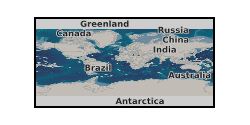
This presentation on the UKCCSRC Call 1 project, Oxyfuel and EGR Processes in GT Combustion, was presented at the GasCCS, 25.06.14. Grant number: UKCCSRC-C1-26.
-
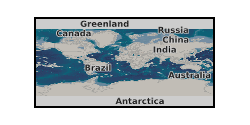
Conventional power generation in the UK faces a significant challenge in the face of decarbonising and maintaining a reliable, secure and cost effective electricity supply. The requirement for fossil-fuel based systems to integrate smoothly with CCS technologies has led to the realistic consideration of oxyfuel based generating plant for CCGT-CCS processes. For CCS to become more technically and economically feasible, it has been suggested that the CO2 scrubbing component of the CCS process will work more effectively if the CO2 concentrations in the exhaust gas were higher. Hence, enhancement of oxygen in the combustion process and the enhancement of CO2 concentration in the plant exhaust via Exhaust Gas Recycling (EGR) can dramatically increase the net efficiency of CO2 scrubbers. Whilst oxyfuel and EGR are known to be potentially very promising technologies for integration with CCGT-CCS processes, there exists a significant lack of fundamental data on the design and reliable operation of industrial burner systems with this technology. Grant number: UKCCSRC-C1-26.
-
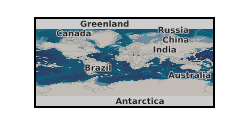
This poster on the UKCCSRC Call 1 project Oxyfuel and exhaust gas recirculation processes in gas turbine combustion for improved carbon capture performance was presented at the CSLF Call project poster reception, London, 27.06.16. Grant number: UKCCSRC-C1-26. This research is concerned with oxyfuel combustion in gas turbine applications, in particular concentrating on the use of modern swirl-stabilised burners. Oxyfuel is considered a particularly challenging idea, since the resultant burning velocity and flame temperatures will be significantly higher than what might be deemed as a practical or workable technology. For this reason it is widely accepted that EGR-derived CO2 will be used as a diluent and moderator for the reaction (in essence replacing the role of atmospheric nitrogen). The key challenges in developing oxyfuel gas turbine technology are therefore: • Flame stability at high temperatures and burning rates. • The use of CO2 as a combustion diluent. • Potential for CO emission into the capture plant. • Wide or variable operating envelopes across diluent concentrations. • Differences in the properties of N2 and CO2 giving rise to previously unmeasured flame heat release locations.
-
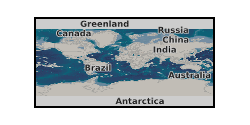
Atmospheric Burner Tests With Oxygen, Nitrogen And Carbon Dioxide. Excel File. Testing undertaken May / June 2014. Data used is detailed in report: Oxyfuel And Exhaust Gas Recirculation Processes In Gas Turbine Combustion For Improved Carbon Capture Performance. August 2014. Grant number: UKCCSRC-C1-26.
-

Data are either (1) depths and spacings between stylolites and faults within Unit IV, (2) images from IODP drill core image logs of the locations of samples observed, (3) photomicrographs and flatbed thin section scans of thin sections cut from samples, (4) SEM BSE or EDS data collected at Cardiff University. These data form the basis of: Leah et al. "Brittle-ductile strain localisation and weakening in pelagic sediments seaward of the Hikurangi margin, New Zealand", Tectonics, Submitted. Images and data from samples collected at IODP Expedition 375 Site U1520 (38°58.1532'S, 179°7.9112'E, 3522.1 mbsl). This is just seaward (east) of the trench of the Hikurangi Margin, New Zealand.
-
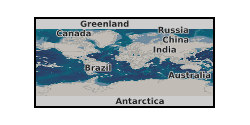
This presentation on the UKCCSRC Call 1 project, Oxyfuel and EGR Processes in GT Combustion, was presented at the GasCCS, 25.06.14. Grant number: UKCCSRC-C1-26.
-
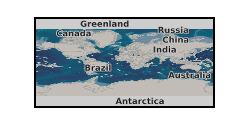
This poster on the UKCCSRC Call 1 project, Oxyfuel and EGR Processes in GT Combustion, was presented at the Sheffield Biannual, 08.04.13. Grant number: UKCCSRC-C1-26.
-
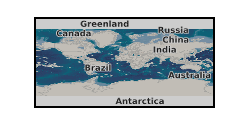
This is a blog (Update, 01.11.13) on the UKCCSRC Call 1 project, Oxyfuel and EGR Processes in GT Combustion. Grant number: UKCCSRC-C1-26.
-
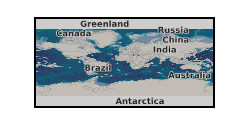
This poster on the UKCCSRC Call 1 project Oxyfuel and exhaust gas recirculation processes in gas turbine combustion for improved carbon capture performance was presented at the CSLF Call project poster reception, London, 27.06.16. Grant number: UKCCSRC-C1-26. This research is concerned with oxyfuel combustion in gas turbine applications, in particular concentrating on the use of modern swirl-stabilised burners. Oxyfuel is considered a particularly challenging idea, since the resultant burning velocity and flame temperatures will be significantly higher than what might be deemed as a practical or workable technology. For this reason it is widely accepted that EGR-derived CO2 will be used as a diluent and moderator for the reaction (in essence replacing the role of atmospheric nitrogen). The key challenges in developing oxyfuel gas turbine technology are therefore: • Flame stability at high temperatures and burning rates. • The use of CO2 as a combustion diluent. • Potential for CO emission into the capture plant. • Wide or variable operating envelopes across diluent concentrations. • Differences in the properties of N2 and CO2 giving rise to previously unmeasured flame heat release locations.
-
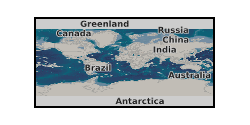
This poster on the UKCCSRC Call 1 project, Oxyfuel and EGR Processes in GT Combustion, was presented at the Nottingham Biannual, 04.08.13. Grant number: UKCCSRC-C1-26.
 NERC Data Catalogue Service
NERC Data Catalogue Service